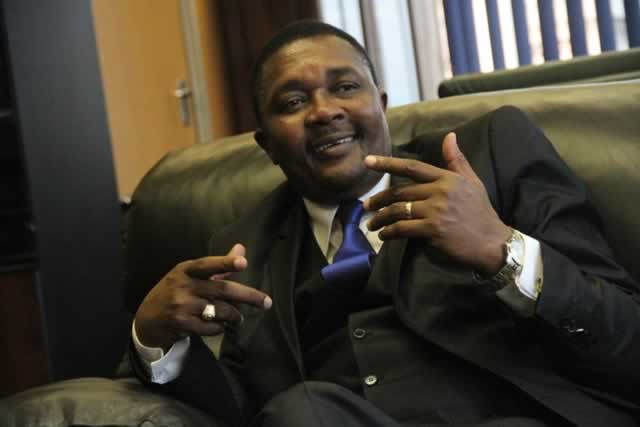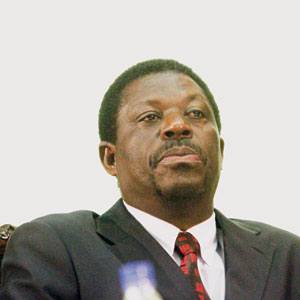Taking tourism to the people

Isdore Guvamombe Tourism Matrix
Engineer Walter Mzembi (WM) bounced back as Tourism and Hospitality Industry Minister in the new Cabinet sworn in this week, hardly two weeks after the country successfully hosted the World Cup of tourism, the United Nations World Tourism Organisation General Assembly. Minister Mzembi speaks to Isdore Guvamombe (IG) on his vision into the new tenure of office.
IG: Minister, congratulations on your re-appointment. How has been the wait for Cabinet appointments since the elections?
WM: Anxiety gripped everyone but you always turn to God for things you cannot control. But, first and foremost, I would like to express my gratitude to His Excellency President Mugabe who has seen it fit to redeploy me into the sector once again. I suppose this is on the back of the good work that has been done collectively not just by me but by the entire sector.
By the sector I mean all the stakeholders that include the ministry itself, tourism facilitators as manifested during the 20th session of the UNWTO General Assembly, the Zimbabwe Tourism Authority, international and regional stakeholders who have made my job easier through their collaborative effort in interpreting the President’s dream and vision on tourism and hospitality. So, it is not amiss to actually put that upfront as an expression of gratitude for that faith.
IG: What is it that you want to do in your new term as Tourism Minister?
WM: If we live to the dichotomy that tourism is a low hanging fruit that it is a catalyst to economic recovery and a stimulant then we must give it this reprieve in the short term and five years is a short term to do wonders for this economy within this period if we live to what we have pledged to the public.
Going forward under a Zanu-PF Government my vision is that one holiday a month per family should not be a privilege but an incentive towards gross national happiness. And I would be working with colleagues in Government to launch a visit Zimbabwe package for all civil servants.
I want work to ensure that it becomes mandatory, especially for civil servants, quasi-Government and parastatals to have holiday packages. The packages must be properly priced bearing in mind the incomes of those people. Our people must find it easy to visit our places of interest. Our locals cannot be left out.
Charity begins at home. The best marketer of a country is its citizenry. We want them to look in from day one and beyond the UNWTO General Assembly. We must look inside and that means that every Zimbabwean going forward, should know every tourist resort in the country.
IG: In the run-up to the UNWTO, there were two Statutory Instruments used by the tourism and hospitality industry to allow them to buy goods tax free. Are you going to extend that into your new tenure?
WM: The Statutory Instruments expired with after the UNWTO General Assembly. We had two Statutory Instruments 124 and 190 dealing with the vehicle duty- free importation and capital goods free importation.
I have just spoken to Minister of Finance Patrick Chinamasa and I told him that I would like, almost immediately, for us to look at an extension of the same in line with what our sectoral manifesto promised the sector.
I want a five-year extension because that can only be Government’s contribution to a capital fund. When you save duty you are contributing capital and when you are serving 30 to 100 percent in duties your contribution in capital of that business is as good as someone borrowing across the counter at bank and that is going to be Government’s contribution to resuscitating the sector.
So it just applied for a limited period of one year and we think there should be a five-year extension extended to all and everyone who wants to get into the tourism business.
IG: After hosting the UNWTO what else can you bring to the tourism and hospitality industry?
WM: Zimbabwe must significantly position itself to tap into the potential of the sector going forward such that by 2015 we should be generating five million tourist arrivals, US$5 billion revenue and contributing 15 percent to Gross Domestic Product and employing one in every 10 of any person who is employed in this country. Currently, we employ directly and indirectly 300 000 people; we are postulating that by 2015 one in every 10 who is employed by this economy should be employed by the tourism sector and this answers to our manifesto, which is premised on employment creation and empowerment.
But beyond the General Assembly the vision directs us to look at what is inside and domestic tourism is going to take centre stage. Meaning that apart from the Victoria Falls we are looking at the 10 political provinces basically carrying one focal destination around which tourism master planning at regional or domestic level will be done.
And, township tourism which I have already captured I think which was a touch and go. We need to go back in and make sure we build a strong brand around township tourism particularly in this iconic places like Highfield which are intrinsically connected to the liberation struggle. This will not be limited to Harare alone as an eye force.
Mzilikazi, Masvingo, Macheke and all these other places will be captured under this concept of township tourism. So, each province will have a focal attraction whether tangible or intangible. We also want to be known the world over as a conference and meeting country.
IG: How can Zimbabwe be a place of meetings conferences and events when there are other places better than us like South Africa?
WM: I have asked the ZTA to brainstorm on a possible framework for a Conventions Bureau. They are yet to submit to the ministry their findings. But the feeling in Government is that we should set up a National Convention Bureau which is not sectoral but multi-sectoral, which can pick conferences not just from inside the tourism sector but outside and across the whole Government.
Now the last Government, the inclusive Government spent almost 40 percent of its time attending other countries’ conferences, exhibitions and meetings. And the most popular venue was South Africa. And now we are saying it is time for Africa and the world to visit Zimbabwe for conferencing even if those meetings do not relate to tourism nor to us, we will just be providing the venue.
IG: Is our infrastructure compatible with what we want to achieve?
WM: We have entered a Solomonic stage of building. The overall vision of the country is tipped in a Solomonic phase where we are now planning building. So everything that we do we will do within the context of planning infrastructure of catching up with other countries that have outpaced us in terms of infrastructural development, small countries.
All I am saying is that we have entered that realm of planting the legacy of infrastructural development across the board and tourism will light. We are complete with the imagining we are now entering the actual building implementation.
With land acquisition and land appropriation completed, we are now building Zimbabwe. This skyline that we have by in urban areas is largely colonial. We now have to plant our own post-revolutionary stage infrastructural legacy. We shall now be planting infrastructure across the board and a lot of our products are very tired because they are colonial, even the landscape of Harare hasn’t changed much in the last 33 years or so and we want a future where we can plant a new skyline of every city in the country and plant that infrastructural legacy.
Secondly, we need to refurbish, upgrade and build new infrastructure in the tourism industry.
IG: It has been a very busy year Minister but we are left with a few months before the end of the year, what is up your sleeve?
WM: World Tourism Day which we will celebrate on September 27 under the theme “Tourism and Water Protecting our Common Future” aligns itself to the United Nations International Year of Water Co-operation which is the theme for 2013.
As much as water is life it is also life to tourism and we intend to celebrate it through a number of activities that will kick off on the 19th with a public lecture at Africa University on the same theme in between a number of activities leading up to September 27.
We shall commemorate the day in the hot springs of Binga and we will seek other than bringing out the issues of in equities the issues of water in tourism development in equities the issues around access and equability will seek to highlight the medicinal hot springs which are also promote medical tourism.
And this brings me to the issue of Nyanyadzi Hot Springs, which have been allowed to go to waste in the past decade including the desecration of an entire hospitality infrastructure which we must entirely look at. Aligned to this the issue is the Kariba Invitational Tiger Fishing Tournament coming back on the domestic recreational calendar on September 26 to October 4. KITFT is a global event attracting 137 teams of between four to 10 people.
We would like to scope or mainstream this event into our world tourism commemorations but at a strategic level we shall be seeking very urgently co-operation with the Ministry of Environment, Water and Climate on a joint strategic exploitation of water resources for tourism development.
IG: You once talked about decentralisation to provinces, what happened?
WM: The National Heritage Council will be informed of the existence of provincial structures now in their provinces which will ensure the interest and participation in tourism.
Our people must start living, they have been surviving over the last decade when there have been estranged in isolation under sanctions so going forward what we see is our Victoria Falls repeated all over the country in 10 provinces through the development of new regional spatial plans that will capture focal points in the country for tourism development.
Feedback: [email protected]









Comments